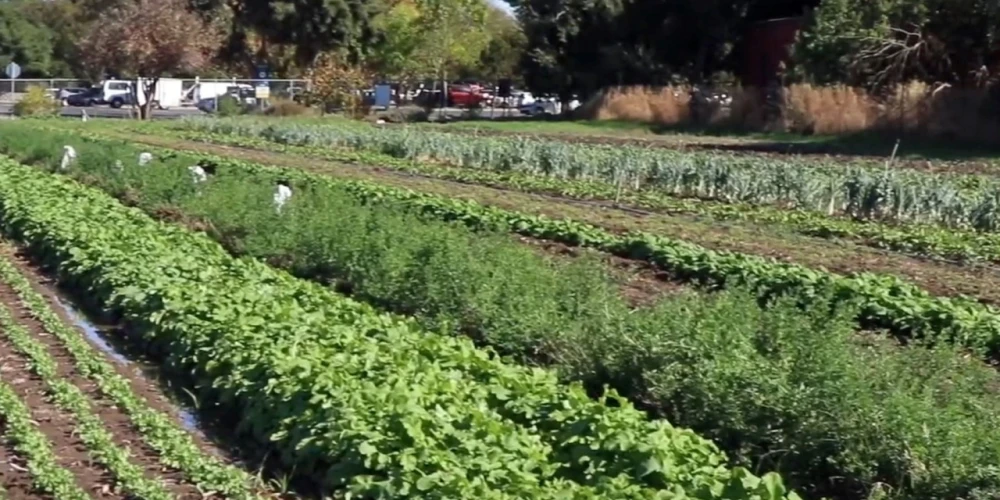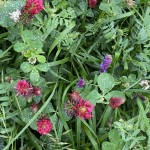Regenerating Soil Health through Organic Farming: Park Farming Organics’ Story
Added 4 months ago

In 1985, Scott Park noticed a troubling decline in the vitality of his farm’s soil. The Sacramento Valley land seemed depleted, and he realized that traditional farming methods weren’t supporting long-term soil health. This insight marked the beginning of Park’s journey into regenerative organic agriculture. Over time, he and his family transformed their 1,700-acre farm, Park Farming Organics, into one of California’s first regenerative organic-certified farms. Today, Park, his wife Ulla, their son Brian, and his wife Jamie run the farm using practices like crop rotation, minimal tillage, and a strict avoidance of synthetic pesticides and fertilizers.
Park Farming Organics focuses on natural inputs only, incorporating compost, cover crops, seaweed, and microbes to build healthy soil ecosystems. According to Scott, this method of farming didn't follow a defined blueprint, and the family faced numerous challenges in converting from conventional farming. In the 1980s and 1990s, the concept of soil health was barely on the agricultural radar, as most solutions relied on chemical treatments. Without a clear path, Park’s switch to regenerative farming was mostly experimental, progressing through trial and error and fueled by his growing understanding of soil ecology.
The farm’s regenerative practices have shown impressive results. After decades of adding organic material and utilizing diverse crop rotations that include tomatoes, rice, corn, wheat, alfalfa, squash, and other crops, Park’s land has improved drastically. The soil is now looser, retains water more efficiently, and requires less nitrogen input. Additionally, the ecosystem health on his farm has increased to the extent that pest and disease pressures have significantly diminished. However, weed management remains a constant struggle, requiring the use of hand weeding and tillage. Despite these challenges, Park is committed to keeping the soil covered with biomass, applying 10 to 15 tons per acre annually and growing cover crops whenever possible to maintain soil life year-round.
Park will speak at the upcoming Organic Grower Summit in Monterrey, California, as part of a panel titled "Regenerating Soil Health with Organic Practices." The session, moderated by Brise Tencer, executive director of the Organic Farming Research Foundation, will explore the role of organic and regenerative practices in promoting climate-friendly, soil-focused farming. Tencer highlights that while regenerative agriculture can vary in meaning, it shares core goals with organic farming: nurturing soil, protecting biodiversity, and promoting sustainability. Through their practices, organic and regenerative farmers not only improve the resilience of their land but also contribute to long-term environmental health.
Tencer emphasizes that organic agriculture requires a commitment to soil stewardship, and organic growers often take a leadership role in adopting practices like cover cropping, intercropping, and green manures, all of which benefit soil health, reduce erosion, and sequester carbon. According to a recent survey by the Organic Farming Research Foundation, nearly 90 percent of organic farmers use cover crops, showcasing their dedication to these principles.
For Park, the transformation on his farm has been dramatic. By focusing on soil health, he has found natural solutions to many agricultural problems, including reduced energy costs, improved soil structure, and lower pest and disease issues. This approach not only aligns with environmental goals but also enhances farm productivity. Looking back, he describes the change as “night and day” compared to conventional farming practices.
The regenerative organic methods employed by Park Farming Organics have set a new standard for sustainable agriculture in California. Scott Park’s insights and experiences serve as a testament to the potential of regenerative practices, offering a roadmap for other farmers interested in sustainable and productive ways to manage their land. His ongoing commitment to year-round soil health reflects his belief that maintaining active soil biology is key to creating resilient farming systems. Through this approach, Park and his family hope to inspire a new generation of farmers to prioritize ecological balance and soil health in their agricultural practices.
Join the conversation
Be the first to leave a comment.
Leave a comment
All comments are reviewed before they are published on the website. Your email address will not be published.




Family-Owned Farm Embraces Regenerative Agriculture to Grow and Educate


